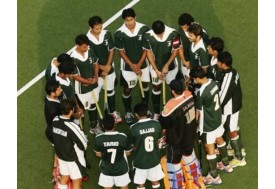 |
| Official poster for the upcoming film “The Face Reader” |
Fortune-telling has a longstanding history in Asia dating back thousands of years, yet it is not necessarily perceived as a pastime practice or mere hocus pocus folklore. Many methods of fortune-telling such as tarot card and palm reading are still a common practice in Korea ― not only among the elderly, but among young people as well.
However, aside from cards and palms, phrenological interpretation or fortune by face reading is a practice that not only determines one’s personality traits purely based on analyzing facial features: The complexities of one’s face are said to be able to determine one’s future.
“The Face Reader” is an upcoming Korean film set in the Joseon era (1392-1910) starring Song Kang-ho as Nae-gyeong, the son of a disgraced noble family, whose talents in physiognomy (known as “gwansang” in Korean) lands him in the middle of a Royal Court murder investigation. Nae-gyeong is asked to use his skills of reading people’s faces to catch the murderer as well as personally assist the king in identifying traitors.
Everyone’s face is unique. It is thought by some fortune-tellers that different aspects of the face cover different areas of the personality, and that race, culture and ethnicity are irrelevant in terms of the methods and the techniques of determining one’s fate.
In many Western cultures, there is a common perception that looking into one’s eyes can tell a lot about one’s character ― eyes are the windows to your soul. However, according to fortune-tellers in Korea, it is not the eyes, but rather the ears that actually tell the most about a person.
“Since you listen to others with your ears, you can tell through looking at the ears whether or not a person is spiteful or good-natured and if they are respectful to other’s opinions,” said Lee Heon, fortune-teller at the fortune-telling establishment Goonghap Story. “You can also tell whether they are strongly opinionated … even whether or not they have a good sex life.”
The nose, on the other hand, represents the self. For example, the nose is thought to represent a person’s ability to earn money. Therefore, the higher the bridge of one’s nose is, the more money they are expected to earn.
Contrary to popular belief, according to the practices of phrenological interpretation, one’s destiny is not set in stone and can be altered. But although some who find bad fortune may seek to change their future’s path by fixing their outer appearance, this has little to no effect on the core of one’s fortune, Lee said.
“Changing one’s outward appearance by surgery does not completely change a person’s fate, because just like trimming off a few leaves from a tree doesn’t have an effect on the roots itself, surgery is only changing the outside,” said Lee. “I have never in my career recommended anyone to get plastic surgery in order to change their fortune. One can always change their fate by personal effort.”
Unlike tarot card reading, which takes years of experience and study in the field in order to properly read someone’s fortune, anybody can learn the techniques of phrenological interpretation and be able to read a person’s face, according to fortune-teller Kim Moon-jeong.
“In face reading there is something called the ‘12 gung,’ which is a guide to how we tell one’s fortune and personality through different parts of the face,” said Kim.
For example, “myeong” is the space between the eyebrows and represents luck and hope while “nojogung” is the chin and represents what a person’s job is going to be, or what they will be doing when they are older.
“The central part of a person’s forehead represents the person’s relationship with their parents,” said Kim. “Right below the eyes, called the ‘namnyeogung,’ represents children, relationship between men and women and even one’s kidney health.
“The harmony of the features on one’s face is the most important for good fortune,” Kim explained. “Someone could have a very lucky nose, but if it is out of balance with the other features on their face, they can’t properly receive all of the blessings.”
There are no set guidelines or rules that clarify a certain-sized nose, a particular face shape, hairline or any facial features that are considered the most “ideal” or said to bring the greatest fortune to a person. But rather it is on an individual and case-by-case basis that is determined by the proportions and symmetry of one’s face that create a balance.
“I can often just look at a person’s expression, feel their energy, and gain the majority of information about them,” said the fortune teller. “The face is the ‘cave of the spirit’ and we can see what kind of life someone has lived just by looking at a person’s face.”
via http://www.koreaherald.com








